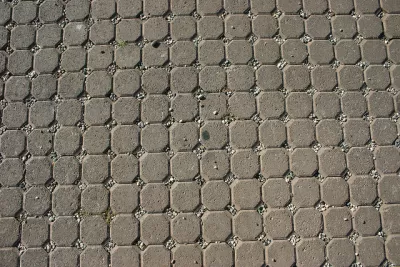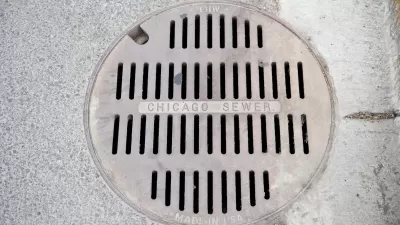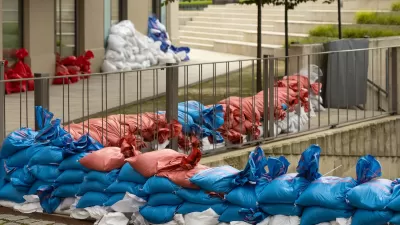These Atlanta neighborhoods stand to gain in the long term from the city's new permeable pavement system and water retention park. But the project has displaced some residents.

Caught at the confluence of combined sewers and stormwater drains, the Atlanta neighborhoods of Peoplestown, Summerhill, and Mechanicsville are undergoing a transformation from impervious to permeable surfaces.
Jen Kinney writes, "The three neighborhoods, largely covered in impervious surface and located in a basin that serves as the natural drainage point for the entire 1,500-mile watershed, have proven highly susceptible to flooding in major rain events."
To fix the problem, the city has embarked on an ambitious project. "With recognition that water would always flow to [one particular point], that system uses a variety of tools, including stormwater ponds and the largest permeable paver project in the U.S. — maybe the world. It's also displacing nearly all of the residents of that highly affected block. The city has acquired all but one of the 29 houses, and is turning the entire block into a water retention park." Stormwater will be separated from untreated waste.
Displaced residents aren't happy though. One of them put it like this: "It's not an amenity if you're being displaced."
"The centerpiece of the project, begun shortly after the flooding and just completed this fall, is nearly 5 miles of streets paved with permeable surface. Spread out between the three neighborhoods, these brick-lined streets allow water to filter down into the earth without passing through the sewer system."
FULL STORY: Stormwater Rethink Aimed at Flooding in Atlanta Neighborhoods

Study: Maui’s Plan to Convert Vacation Rentals to Long-Term Housing Could Cause Nearly $1 Billion Economic Loss
The plan would reduce visitor accommodation by 25,% resulting in 1,900 jobs lost.

Alabama: Trump Terminates Settlements for Black Communities Harmed By Raw Sewage
Trump deemed the landmark civil rights agreement “illegal DEI and environmental justice policy.”

Why Should We Subsidize Public Transportation?
Many public transit agencies face financial stress due to rising costs, declining fare revenue, and declining subsidies. Transit advocates must provide a strong business case for increasing public transit funding.

Paris Bike Boom Leads to Steep Drop in Air Pollution
The French city’s air quality has improved dramatically in the past 20 years, coinciding with a growth in cycling.

Why Housing Costs More to Build in California Than in Texas
Hard costs like labor and materials combined with ‘soft’ costs such as permitting make building in the San Francisco Bay Area almost three times as costly as in Texas cities.

San Diego County Sees a Rise in Urban Coyotes
San Diego County experiences a rise in urban coyotes, as sightings become prevalent throughout its urban neighbourhoods and surrounding areas.
Urban Design for Planners 1: Software Tools
This six-course series explores essential urban design concepts using open source software and equips planners with the tools they need to participate fully in the urban design process.
Planning for Universal Design
Learn the tools for implementing Universal Design in planning regulations.
Smith Gee Studio
Alamo Area Metropolitan Planning Organization
City of Santa Clarita
Institute for Housing and Urban Development Studies (IHS)
City of Grandview
Harvard GSD Executive Education
Toledo-Lucas County Plan Commissions
Salt Lake City
NYU Wagner Graduate School of Public Service





























